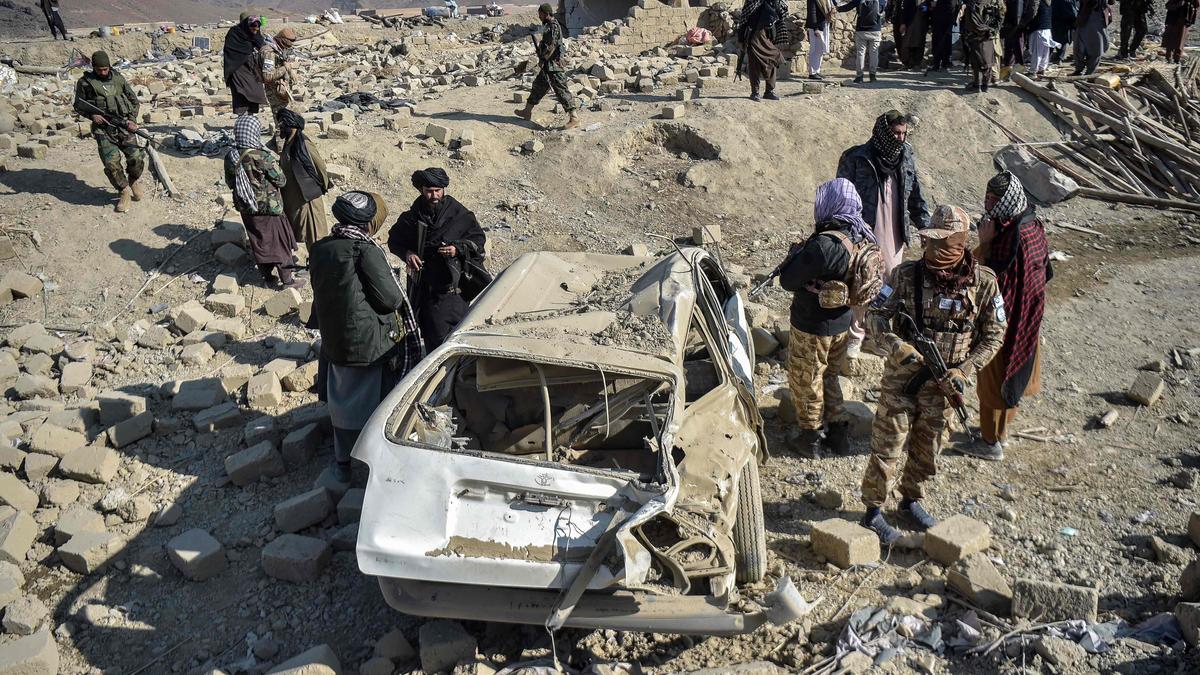 |
|
The deteriorating relationship between Pakistan and Afghanistan is a stark reminder of the unintended consequences of foreign policy decisions. Pakistan's long-standing support for the Afghan Taliban, initially perceived as a strategic asset, has transformed into a major security threat. The article details the escalating cycle of violence, with cross-border attacks and retaliatory airstrikes highlighting the dangerous stalemate between the two nations. The Pakistan Army's heavy losses in counter-terrorism operations underscore the severity of the situation, while the Afghan Taliban's inaction against the Tehrik-e Taliban Pakistan (TTP), which operates from Afghan soil, further fuels the crisis.
The article delves into the historical context, tracing Pakistan's involvement in Afghanistan back to the Soviet-Afghan war. The pursuit of 'strategic depth' against India and the misguided belief in a pliable Taliban regime led to a miscalculation of epic proportions. Pakistan's support for extremist groups, aiming to destabilize India and control Kabul, has backfired spectacularly. The TTP, sharing ideological affinities with the Afghan Taliban, has become a formidable enemy, posing a significant threat to Pakistan's internal security. This highlights the dangerous consequences of supporting violent extremism for short-term geopolitical gains.
The Durand Line, a contentious border between Pakistan and Afghanistan, further complicates the situation. The Afghan Taliban's rejection of the Durand Line and their tacit support for Pashtun nationalism fuel irredentist sentiments, adding another layer of complexity to the crisis. Pakistan's attempts to fence the border have been met with resistance, signifying a deeper challenge to Pakistan's sovereignty and territorial integrity. The article also touches upon the internal debate within Pakistan, with some advocating for drastic measures such as offering drone bases to the US, while others emphasize the need for diplomatic engagement. The conflicting viewpoints highlight the deep-seated divisions and the lack of a clear, coherent strategy to address the multifaceted crisis.
The article powerfully illustrates how Pakistan's actions have created a self-inflicted security crisis. The focus on short-term geopolitical gains, the disregard for the complexities of Afghan politics, and the continued support for extremist groups have created a perfect storm. The escalating violence, the unresolved border dispute, and the rise of the TTP all point to a deeply troubled relationship with no easy solutions. The article concludes by emphasizing that Pakistan's security establishment is struggling to reconcile the military and political dimensions of their response. This lack of coherent strategy, coupled with the deep-seated mistrust between the two nations, casts a long shadow on the future of regional stability. The situation underscores the importance of re-evaluating foreign policy approaches and the long-term implications of supporting violent extremist groups in pursuit of short-term political goals. The current crisis necessitates a fundamental shift in Pakistan's approach toward Afghanistan, requiring a strategy that prioritizes long-term regional stability over short-sighted gains.
The article's analysis goes beyond simply describing the current conflict. It offers a critical examination of Pakistan's foreign policy and its role in creating the current crisis. The author highlights the hubris and miscalculations of Pakistan's strategic thinking, showing how the desire for regional dominance led to the country becoming embroiled in a dangerous and self-destructive conflict. The situation also highlights the limitations of military solutions in addressing complex political problems. The escalating violence and the lack of diplomatic progress underscore the need for a comprehensive strategy that addresses the root causes of the conflict, including the unresolved border dispute, the rise of extremist groups, and the lack of trust between Pakistan and Afghanistan. Ultimately, the article serves as a cautionary tale of the consequences of misjudged foreign policy and the need for a more nuanced and pragmatic approach to regional security challenges.
